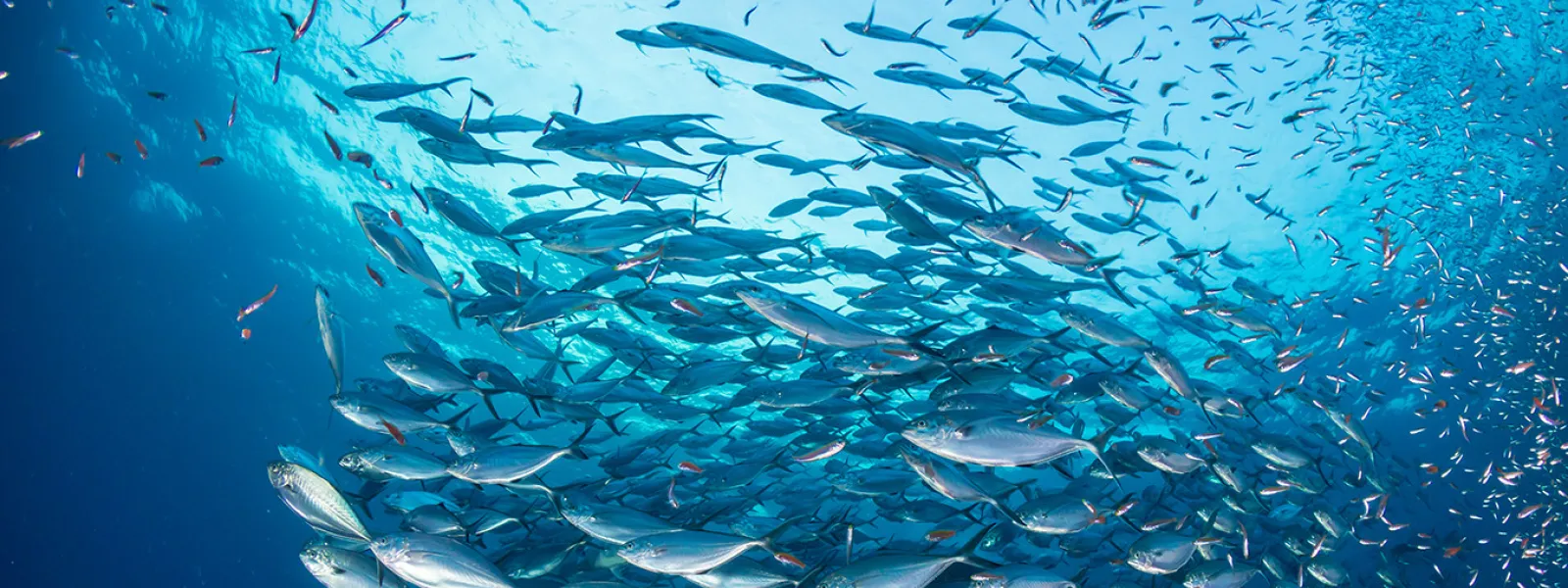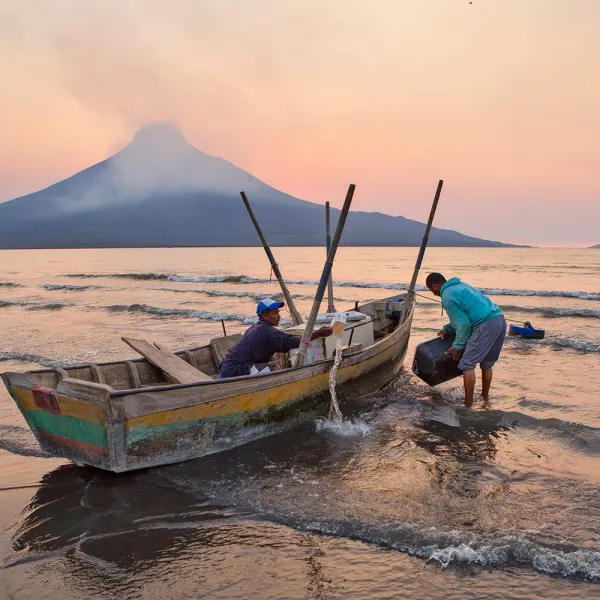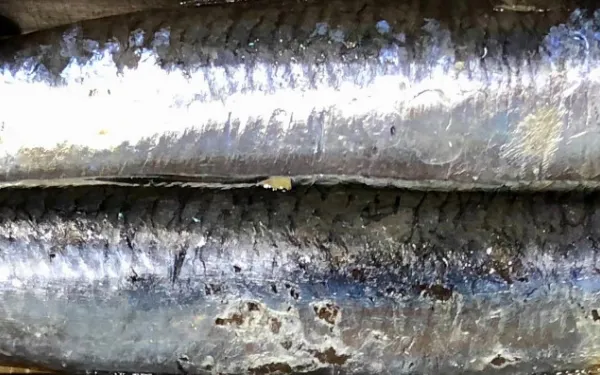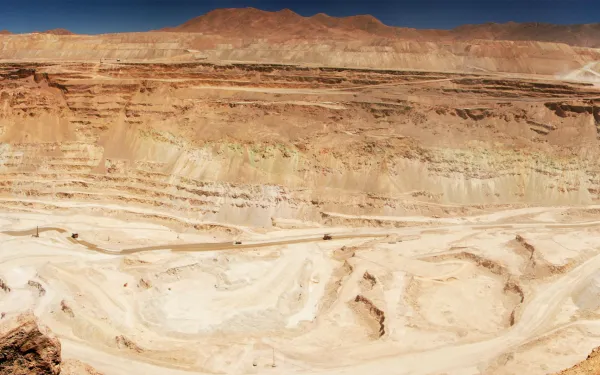
Project
ShutterstockTowards an end to subsidies that promote overfishing
Overfishing is one of the main problems for the health of our ocean. And the provision of negative subsidies to the fishing sector is one of the fundamental causes of overfishing.
Fishing subsidies are financial contributions, direct or indirect, that public entities grant to the industry.
Depending on their impacts, they can be beneficial when they promote the growth of fish stocks through conservation and fishery resource management tools. And they are considered negative or detrimental when they promote overfishing with support for, for example, increasing the catch capacity of a fishing fleet.
It is estimated that every year, governments spend approximately 22 billion dollars in negative subsidies to compensate costs for fuel, fishing gear and vessel improvements, among others.
Recent data show that, as a result of this support, 63% of fish stocks worldwide must be rebuilt and 34% are fished at "biologically unsustainable" levels.
Although negotiations on fisheries subsidies, within the framework of the World Trade Organization, officially began in 2001, it was not until the 2017 WTO Ministerial Conference that countries committed to taking action to reach an agreement.
This finally happened in June 2022, when member countries of the World Trade Organization reached, after more than two decades, a binding agreement to curb some harmful fisheries subsidies. It represents a fundamental step toward achieving the effective management of our fisheries resources, as well as toward ensuring global food security and the livelihoods of coastal communities.
The agreement reached at the 12th WTO Ministerial Conference provides for the creation of a global framework to reduce subsidies for illegal, unreported and unregulated fishing; subsidies for fishing overexploited stocks; and subsidies for vessels fishing on the unregulated high seas. It also includes measures aimed at greater transparency and accountability in the way governments support their fisheries sector.
The countries agreed to continue negotiating rules to curb other harmful subsidies, such as those that promote fishing in other countries' waters, overfishing and the overcapacity of a fleet to catch more fish than is sustainable.
If we want to have abundant and healthy fishery resources, it is time to change the way we have conceived fishing until now. We must focus our efforts on creating models of fishery use that allow for long-term conservation.
Partners:

Fracking prohibited in New York, but promoted in Colombia
Hydraulic fracturing, or fracking, is an unconventional form of extracting oil and gas. The technique requires drilling first vertically and then horizontally, and injecting a high-pressure mix of water, sand, and toxic chemicals. The injection fractures subsurface layers of shale, releasing the oil and gas contained within. Fracking has severe impacts on both the environment and human health: it contaminates surface and ground water sources, causes earthquakes and air pollution, and releases greenhouse gases, among other things. These effects have been documented in studies by the German Ministry of Environment, the US Government Accountability Office, the Canadian Council of Academies, and Anthony Ingraffea, a professor at Cornell University. On December 17, 2014 the Governor of New York announced the prohibition of fracking in the State because of the "significant health risks" posed by the practice.This argument stems from a two-year study conducted by the New York State Department of Environmental Conservation, which analyzed the impacts of fracking on human health and on air and water quality in communities throughout the state. The decision has been celebrated by environmental advocates and criticized by some investors who claim that it is denying the State economic benefits from the extractive industry. The debate over whether or not to permit fracking has been going on in other latitudes as well. In France, fracking was banned in 2011 by national law. After an oil company sued the government, the Constitutional Court upheld the ban in 2013. Bulgaria banned fracking in 2012, and Germany maintains a moratorium on the technique. Bans or moratoriums have also been issued by municipalities in the United States, Canada, Spain, Argentina, Switzerland, Italy, Ireland, the Netherlands, and Australia. Despite this international precedent, the Colombian government has promoted fracking. In 2008, the National Hydrocarbons Agency issued a study to identify the potential in unconventional hydrocarbons in the country. In 2012, the National Environmental Licensing Authority authorized a hydraulic fracturing project in Boyacá. That year, the Comptroller General of the Republic issued just one warning recommending that companies "take into account the precautionary principle regarding the latent risk hydraulic fracturing poses to environmental heritage through the possible contamination of groundwater and surface water sources, geological risk, and the risk to public health and nearby urban centers." In January 2015, in a special performance-monitoring warning, the Comptroller found that the State had not adopted the necessary measures. By the end of 2012, the Colombian government began creating a regulatory framework for fracking in Colombia. They contracted international experts to regulate and identify the impacts of the technique. An investigation by independent news site La Silla Vacía has found that several of these experts are linked to the oil industry. The Ministry of Mines and the National Hydrocarbons Agency then issued legal instruments that would serve as the framework for the start of fracking in the country. Francisco José Lloreda, president of the Colombian Petroleum Association, publicly stated that without fracking “we would have a fiscal catastrophe” within six or seven years. And the Minister of Mines, Tomás González, said that fracking is needed to finance the country’s peace process. Even before fracking began in Colombia, various sectors issued warnings. In August 2014, AIDA publicly urged (in Spanish) the government to apply the precautionary principle and prevent the serious and irreversible consequences of fracking. Later, in September, the National Environmental Forum and other organizations requested a conditional moratorium on fracking in Colombia. Additionally, Housing Minister Luis Felipe Henao voiced concern about the effect fracking would have on the water supply. He said, "To me, as Minister of Water, fracking scares me.… When you see what is happening in Santa Marta, you realize that one can invest a lot in pipes, but if you don’t have clean water supplies, you won’t do much more than carry air through them." From all these arguments, the obvious question arises: Why is fracking – which has been prohibited or restricted in various countries and municipalities – being promoted by the Colombian government? The most apparent response is that it will increase extraction of hydrocarbons and, as a consequence, the revenues of government and private industry. What government and industry do not see is that no amount of revenue is great enough to offset the social and environmental impacts of fracking, or of the possible new conflicts that may arise because of its effects on water resources. We have seen nationally (Guajira and Arauca) and internationally (Los Angeles and San Paulo) that without drinkable water, a successful economy,and even life itself are not feasible.
Read more
Towards Ecosystem Management of the Peruvian Anchoveta Fishery (in Spanish)
The report, created with the financial support of the Pew Charitable Trusts, contains recommendations for the legal and institutional reforms needed to manage the fishery while caring for the needs of the ecosystem as a whole. The recommendations are designed to ensure that the fishery is managed to provide enough anchoveta for both the commercial fishing industry and the rest of the marine life that depends on it. Download the report (IN SPANISH)
Read more
Guidelines for the Environmental Impact Assessment of Mining Projects
For many communities, water is a scare and therefore valuable resource. Access to it is complicated if rivers, lakes, or other sources are polluted or overused. Water quality often suffers when the impacts of mining projects are not adequately evaluated before the mines are authorized. AIDA’s legal expertise is helping to prevent or minimize mining’s damage on the environment and on the people who depend upon it. In collaboration with scientists and experienced technicians, we’ve prepared a guide detailing the comprehensive analysis that must be completed for any Environmental Impact Assessment of a proposed mining project. The guide will be as useful to authorities as to communities and civil society organizations. This guide recommends that, in all its sections, the Environmental Impact Assessment of a mining project contain detailed information that addresses everything from general aspects of the project to its social and environmental impacts, as well as measures to prevent or mitigate them. Read and download the report (in spanish)
Read more